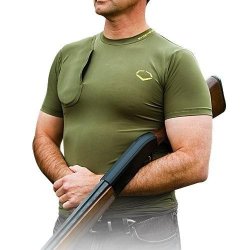I am 12 weeks out from my left shoulder replacement. I'm right handed. Mine was anatomical, ball replaced by ball, cup replaced with synthetic cup. I was driving 5 days later. My replacement looks like they inserted a club in my arm. I have had "zero" pain. Never took anything but ibuprofen. PT & doc are amazed, no rotator or bicep or any other damage, just that big bird beak spur and a joint that had been in an arthritic environment for a long time. Doc told me the drill bit started smoking when they started to drill my arm out. Said the bones were incredibly hard. I'm 68 and I feel real good. I will be fully released next week. They have just cautioned me about what I lift above 90 degrees and over my head. Close to the body and below 90 I have no restrictions, though I'll be cautious. My range and reach are incredible, had 120 degree movement after the first week of surgery. I am quite ecstatic to say the least. Secret for me is God works in mysterious ways and His prompting in my spirit to do the therapy they sent home with me each week. I did therapy 3 times a day, 30 to 45 minutes each therapy session, for 8 straight weeks, then only missed 3 times a day a couple of times through the next 3 weeks. He is he Great Physician and the Great Healer!
Thank you all for sharing your experiences.
I had both knees (2017, and 2018) now this, the R shoulder scheduled next year.
Pre surgery, I could not raise the arm past 45 degrees and hold it with its own weight. Turning the steering wheel coming out of a parking space was really painful. Hoping this surgery would be Godsend.
Headed to clinic for rt shoulder rotator repair scheduled for 9 this morning. Second time on this shoulder, same surgeon also. Retired, so not in such a big hurry to get back to work. Followed PT's plan and back at work 3 weeks later. Have switched to 6mm in most range activities and afield.

